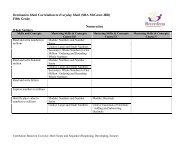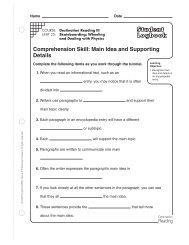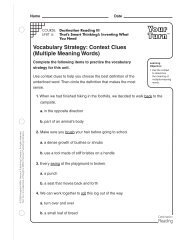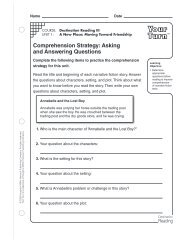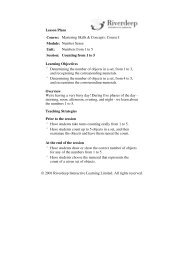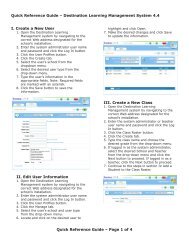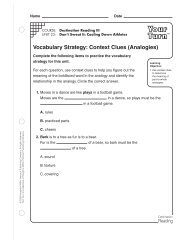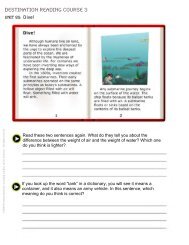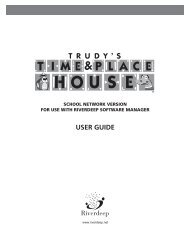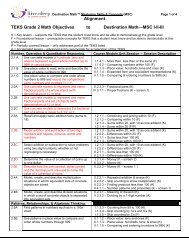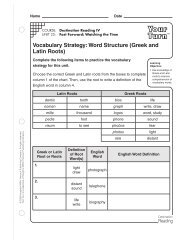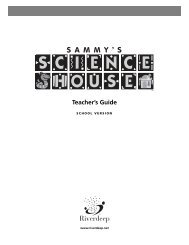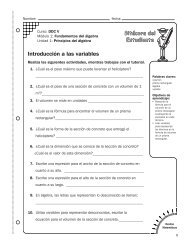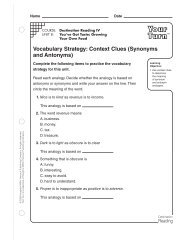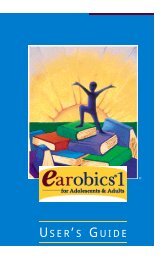Course III Teachers Guide.pdf - Houghton Mifflin Harcourt
Course III Teachers Guide.pdf - Houghton Mifflin Harcourt
Course III Teachers Guide.pdf - Houghton Mifflin Harcourt
Create successful ePaper yourself
Turn your PDF publications into a flip-book with our unique Google optimized e-Paper software.
DESTINATION READINGETTING STARTED17Writing ActivitiesDestination Reading includes a variety of writing opportunities, both formal and informal. The formal writing activities aredesigned to help students integrate and apply the concepts they have learned in a lesson or unit by composing their owntext. Writing practice also strengthens reading comprehension. Writing activities typically:• allow students to respond to the unit theme, to reflect about a skill or strategy, or to complete some other informalassignment.• encourage students to apply a concept they have learned by composing their own text.• invite students to respond to a reading passage.Activities that ask students to respond formally by composing text are most often found in the Apply activities in Lessons1 and 4. The goals of these Apply activities include involving students in higher order thinking, giving them opportunitiesto create, encouraging them to personalize their learning, and helping them to transfer knowledge about a skill orstrategy to a new context. Some of the units’ learning objectives for such formal writing activities include:• Write a summary of the main character's goals in a new adventure fiction text.• Generate learning statements in a K-W-L chart after reading an informational magazine article.• Write sentences that paraphrase a new text by changing word order and using synonyms.• Write an alternative ending to a play incorporating text features of a play.• Write a portion of a dictionary entry to demonstrate comprehension of grade-level and content vocabulary.Students also complete informal writing activities that give them an opportunity to connect their learning with theirpersonal experience or comment on their feelings. These informal writing events are designed to help students staypersonally engaged in their learning experience.Saving Text in Writing ActivitiesBecause student writing is an important part of the learning experience, Destination Reading saves any text that astudent has entered in the writing activities. If the student leaves the lesson and returns at a later time, the text enteredearlier remains onscreen. The text will reappear even after a student has logged out and ended the session.This enables teachers to retrieve the text at any time from the RLMS, for up to one year after text has been entered intothe program. The sticky note feature is the one exception. Sticky note text is not saved once the session is completed.Writing Activity TypesA variety of writing spaces are used for student text entry. For example, the text entry space, shown below, may appearas a K-W-L chart, or as paragraphs to be entered into an existing brochure, or as a space for entering sentences for threedifferent vocabulary words, or as a space for recording information about the plot, character, and setting of a fictionpassage.



